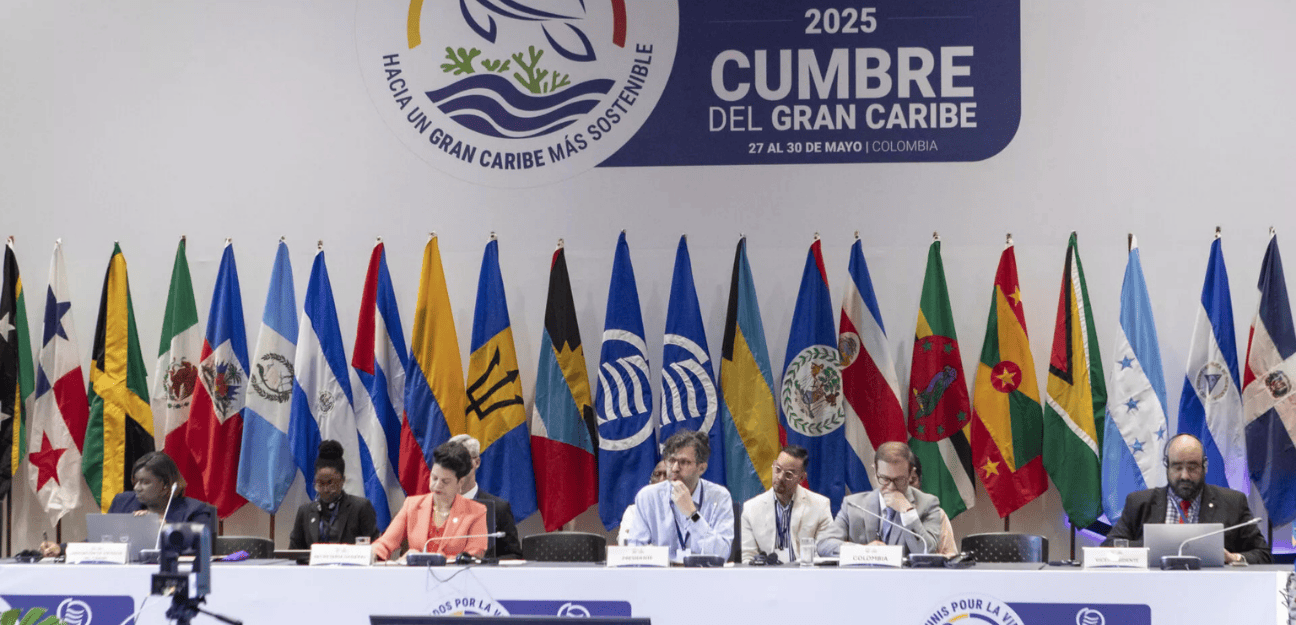The Greater Caribbean unites with a purpose: To drive integration and change

By Carlos Domínguez Avila / Latinoamérica21
In the face of growing global interdependence, the Wider Caribbean region faces complex challenges that require collective, strategic and urgent responses. Climate change hits small island states and continental coasts particularly hard; food insecurity and natural disasters threaten the well-being of millions; Meanwhile, social inequalities, forced migration, and economic vulnerability continue to deepen fragmentation. In this context, the need to move towards greater regional integration becomes not only a political aspiration, but a vital necessity.
The historical fragmentation of the region, marked by its multiple languages, political systems and levels of economic development, has made it difficult to build a common project. However, shared challenges—such as adapting to climate change, managing sustainable tourism, combating drug trafficking, and boosting intra-regional trade—require more robust, flexible, and operational multilateral spaces.
It is precisely in this scenario that the Tenth Summit of Heads of State and Government of the Association of Caribbean States (ACS) is being held, an event of great relevance that will be held from May 27 to 30 in Cartagena and Montería, under the pro tempore presidency of Colombia. The summit constitutes a strategic opportunity to rethink the role of the ACS, revitalize its mechanisms and position it as a key platform for integration in the Greater Caribbean.
The ACS was founded in 1994, also in Cartagena, as a mechanism for consultation, consultation and cooperation between the countries and territories that share the coasts of the Caribbean Sea. Today, with headquarters in Port of Spain (Trinidad and Tobago), it brings together 25 member states and a dozen associate members, including Mexico, Colombia, Venezuela, Central America, the Guyanas and the Caribbean island states. Together, it represents more than 270 million inhabitants, a human, cultural and ecological wealth of incalculable value.
During its three decades of existence, the ACS has demonstrated a remarkable capacity for adaptation, flexibility and practical approach around key thematic axes: trade and investment, tourism, transport and disaster risk management. It has sought to articulate diverse interests in a region marked by great asymmetries, betting on cooperation based on mutual respect and solidarity.
However, the world has changed. Global threats – from health crises to geopolitical wars, including the extreme effects of climate change – require a profound renewal of the ACS's work agenda. The recent approval of the 2025-2030 Strategic Plan marks a positive step in that direction, while a renewal in its leadership is glimpsed with the management of the Secretary General, Honduran Ambassador Noemí Espinoza Madrid, a career diplomat with more than thirty years of experience.
Among the issues that should be priorities for the association are institutional strengthening, the solution of budgetary and administrative problems, as well as better accountability. It is also key to expand the visibility of the ACS's work to regional and international public opinion, incorporating civil society, academia and the productive sectors more actively.
A proposal that is gaining more and more strength is to align the objectives of the ACS with the Sustainable Development Goals (SDGs) of the United Nations. This integration would allow for a more holistic and coherent approach to the challenges of the Caribbean: from inclusive social development and poverty eradication, to energy transition, digital transformation, food security and climate justice. Incorporating the SDGs into the ACS agenda is not only relevant, but essential.
The summit's theme, "United for Life: Towards a More Sustainable Greater Caribbean," rightly reflects the region's vocation for integration. In the midst of an unstable international order, marked by competition between great powers, emerging authoritarianism in several countries and growing economic uncertainty, the Greater Caribbean must assert itself as a region of peace, cooperation and sustainability. This affirmation must be translated into concrete commitments and effective actions by governments and all relevant actors.
The history of the Caribbean has been marked by cycles of dependence, foreign intervention, and resistance. From slavery to the fight against colonialism, through moments of regional cooperation, this region has been able to find its voice and build shared identities. Today, that same history should be a source of inspiration to promote a new stage of integration, one that is not limited to political declarations, but that articulates joint actions, solid institutions and an active regional citizenry.
The ACS, with its multilateral structure and inclusive approach, has the potential to become the main mechanism for political and technical consultation in the Greater Caribbean. But to achieve this, it needs to broaden its legitimacy base, modernize its operation, attract strategic investments and consolidate alliances with international organizations, NGOs and universities.
In conclusion, the Tenth Summit of the ACS should not be seen as just another event in the regional diplomatic calendar. It is a historic opportunity to deepen the integration of the Greater Caribbean, renew the commitment to sustainable development and establish a concrete roadmap towards a more equitable, resilient and united region.
Faced with a scenario of international uncertainty and systemic reconfiguration, integration is no longer an option; it is an urgent need. Only through strengthened regional cooperation, respectful of diversity but focused on common goals, will it be possible to build a truly sovereign, democratic and sustainable Greater Caribbean.



